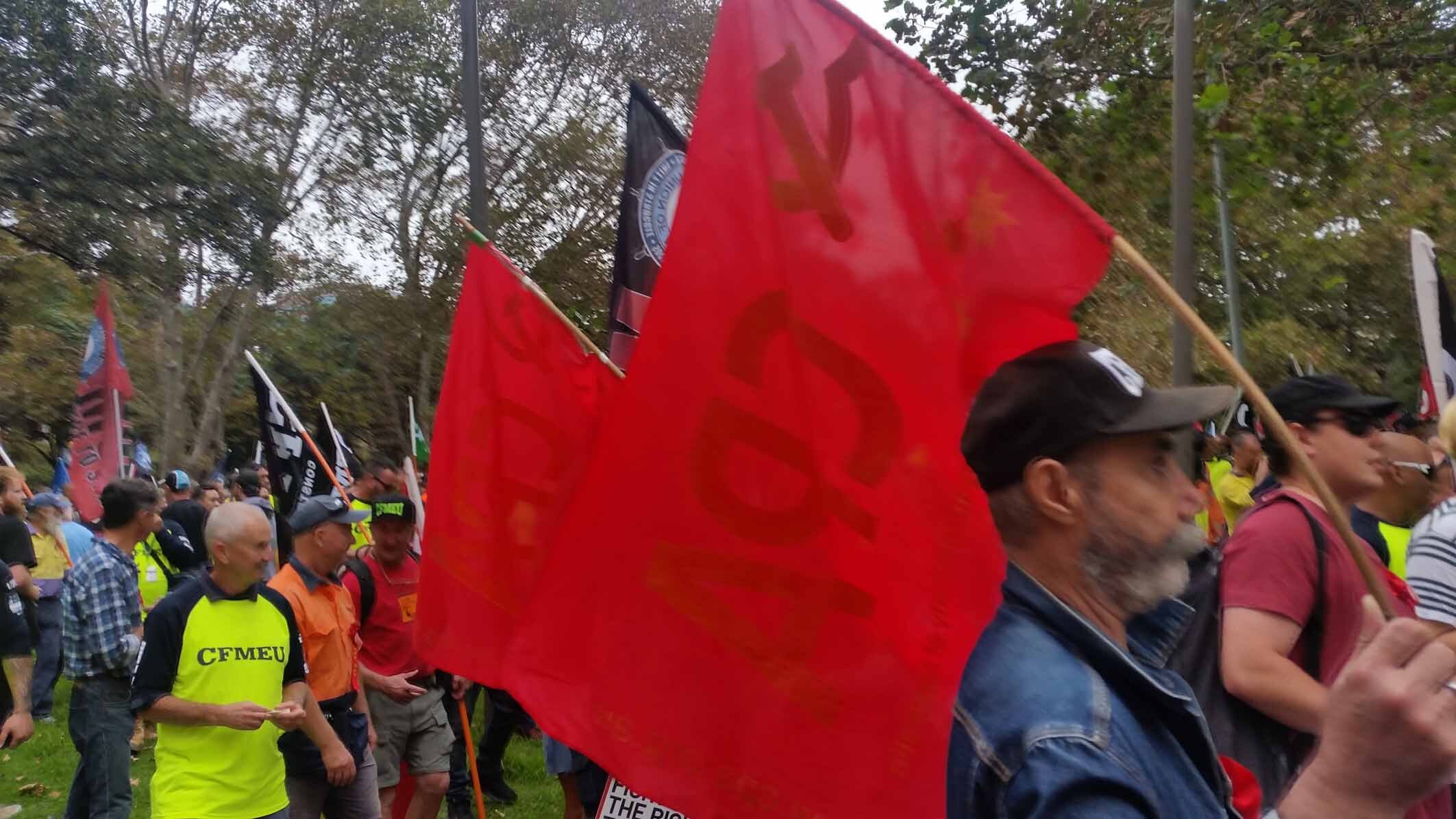
Continuation of 2011- 2020
Housing
Aboriginal Issues
Climate Change

The fight to save public housing in the inner city of Sydney
By the beginning of this decade the NSW State Government began shedding public housing. Similar acts happened in other states and gradually the number and quality of public housing stock started to dwindle.
In Sydney, a fightback against the destruction of the public housing began in 2011 led by the CPA in Glebe. Later the privatisation of public housing in Millers Point became the focus of struggle. Public housing was under threat in Glebe, Millers Point, Waterloo, Erskineville, Redfern, and other parts of the State. Many people from the CPA, the Greens, ALP and other political groups and community organisations joined the growing fight back against the destruction of public housing and for its significant expansion.
Public Housing being demolished in Cowper St, Glebe around 2011.
Millers Point Struggle
The NSW Government wanted these valuable properties to be sold as they were near Barangaroo. The residents were moved out despite age and disability - all in the name of making a quick dollar. Resistance was fierce with local residents and the unions especially the MUA lending a hand. Of course the CPA was in the thick of the fight too!
Franklyn Street Complex about to be destroyed.
This complex is set to be turned into 14 storey towers and privatised with only 30% component of public housing.
The Resistance to public housing destruction.
A large demo in support of not demolishing Franklyn St occurred on Jan 30th 2021.

Work with indigenous communities
Aboriginal people are the proud keepers of what is arguably the oldest continuous culture on our planet. Their heritage spans many different communities, each with its own unique mixture of cultures, customs and languages. In May 2020 there were an estimated 745,000 Aboriginal people living in Australia, making up around 3 per cent of the country’s population.
The movement for Aboriginal land and human rights is strong, even while the people are discriminated against, exploited and oppressed to a high degree. The militant struggle of the Aboriginal people against racism and colonialism, against the denial of their rights, is also an ideological struggle against individualism in support of a collective society based on co-operation not competition.
The most important demand – which Aborigines have fought for since colonisation began in 1788 -- is for land rights, their right to own and control their land and resources. This campaign is more than an issue of civil rights. It goes beyond this bourgeois democratic aim because it contains a significant revolutionary aspect, the demand for the return to collective ownership of part of the basic means of production.
In this decade the movement wais centred on demands for a “Voice to Parliament” – establishing a way to give Aboriginal people a say on the policies and laws that impact their lives, a way to deliver constitutional recognition for Aboriginal people, and a way to ensure that government is better informed in its approach to Aboriginal affairs policy and law-making.
A second area of militant campaigning was the Black Lives Matter movement – a movement against the deaths of Aborigines, mostly young men, in police and prison custody. Aboriginal people continue to die in our so-called justice system. In the last 30 years, 474 Aboriginal people have died in custody.
A third major campaign was against fracking with 70 per cent of the north of the continent covered by fracking licences. Traditional owners and their supporters waged a prolonged campaign to prevent fracking in order to protect their land and water.
The CPA made a contribution to these campaigns but was most active in celebrating the 50th anniversary of the Gurindji walk off from the Wave Hill Station in the Northern Territory, participating in the Black Lives Matter movement, and campaigning to end racism in sport, as well as participating in the actions to mark Invasion Day (January 26 – usually called Australia Day).
Aboriginal communities and their supporters, including CPA members around the country. have been fighting on many fronts in addition to land rights. Much has been achieved. Much more remains to be done, including in support of vastly improved Aboriginal employment, education, health and housing.
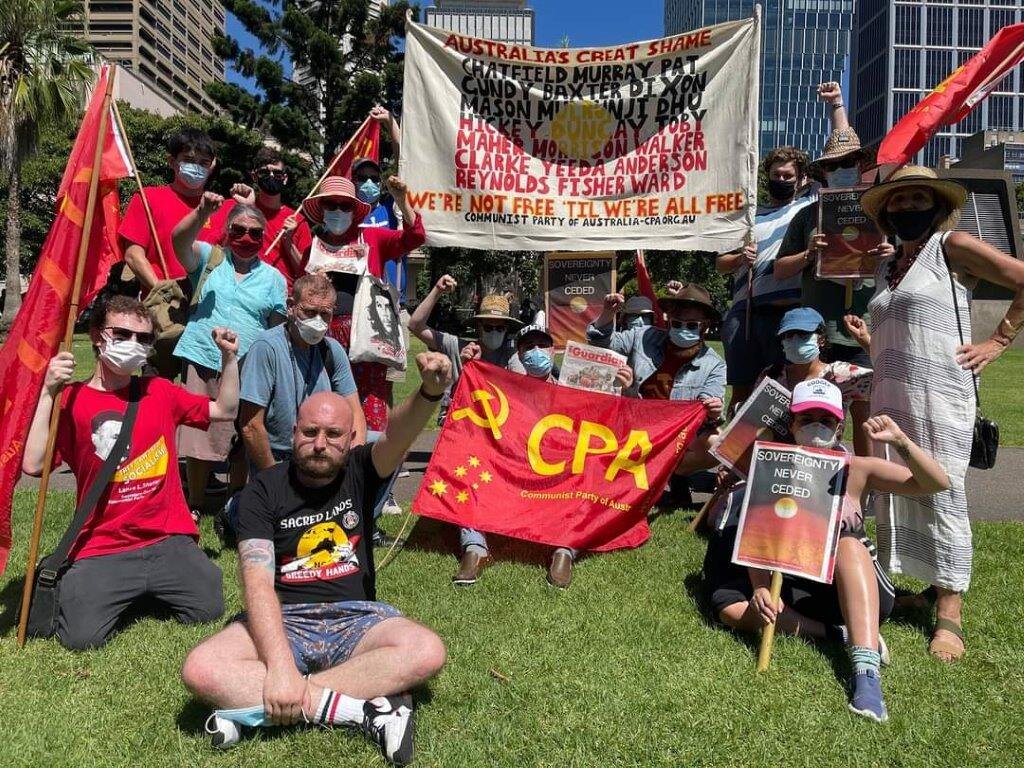
View of the CPA contingent at Black Lives Matter Demo 2020.
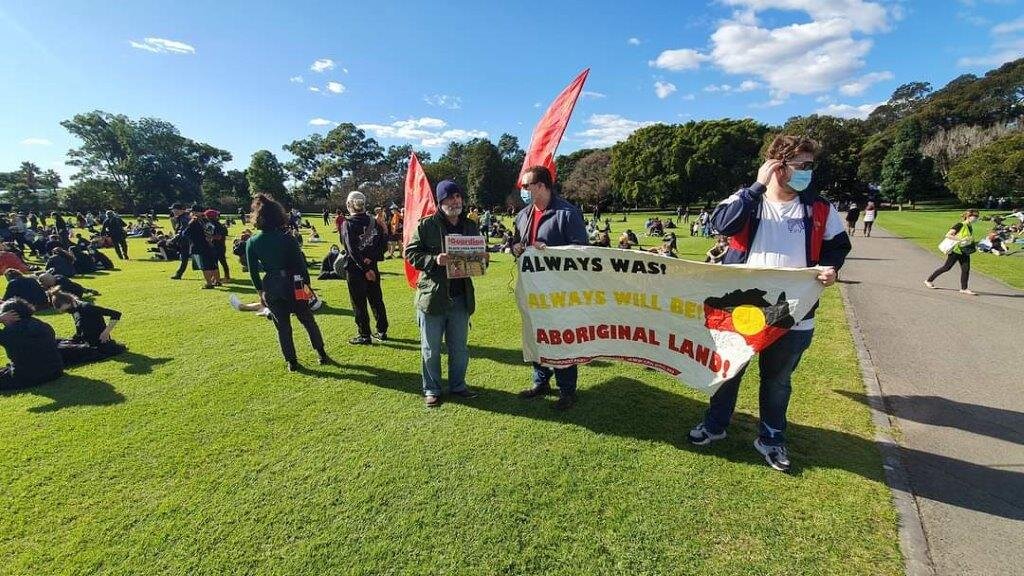
Another view of the CPA contingent at a Black Livers matter demo 2020.

The postcard campaign by the party to stop racism in sport.
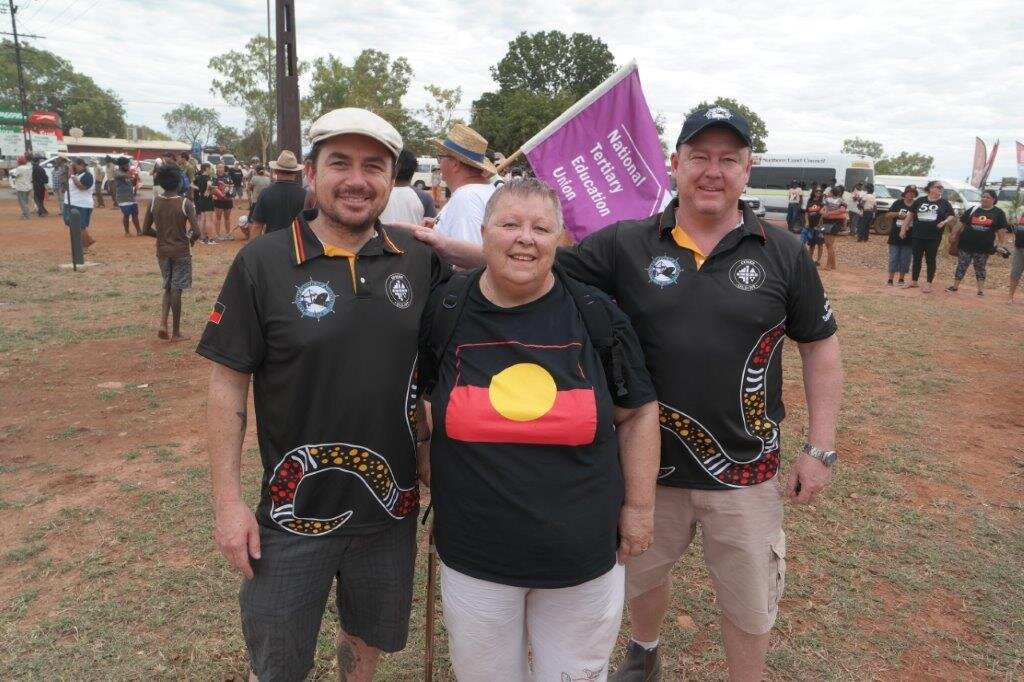
Comrades at the 50th celebration of the Gurindji walk off from Wave Hill Station. 1966-2016

The Bedford has pride of first place in the procession to mark the 5oth anniversary.

Part of the huge crowd that gathered to celbrate the 'walk-off'.

Party's campaign poster to support the First Nations Workers Alliance (FNWA) of the ACTU.
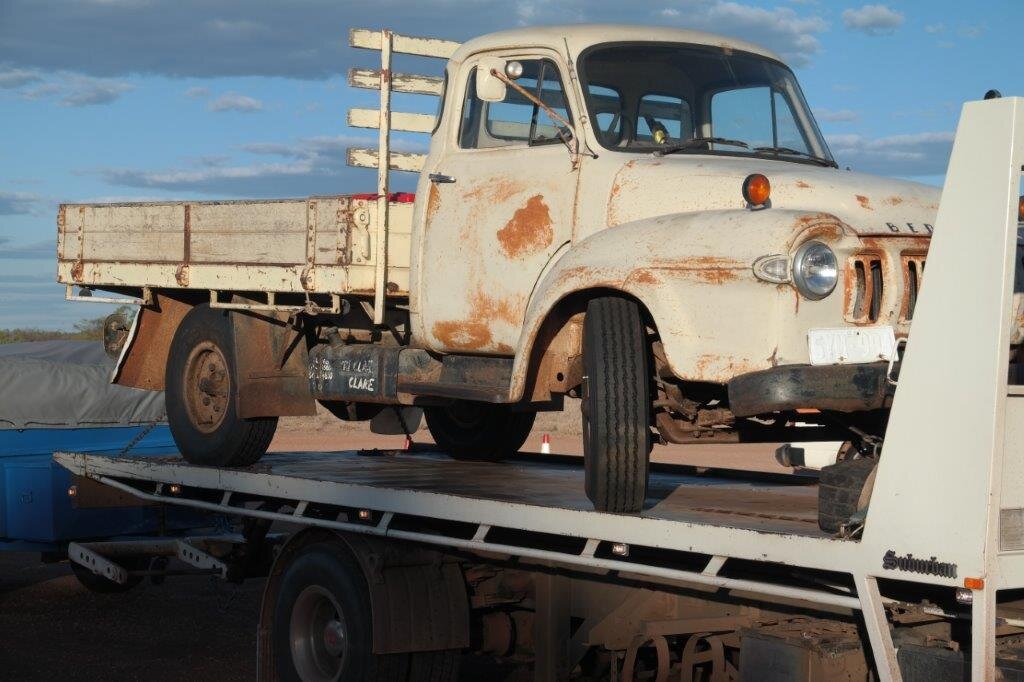
The famous Bedford truck driven by the famous communist Brian Manning and unionists from Darwin. Brian drove from Darwin each week with supplies for the people to help them survive.

The logo of the First Nations Workers Alliance (FNWA). CPA work resulted in 300 new members of the alliance.

Climate Change-Fighting for the Future
Fighting for the future
Fighting for the future
The stakes in the bitter class war taking shape are immense and arise from the nature of capitalism. Capitalism is an unsustainable system. The scientific and technological progress which has occurred under capitalism is directed towards profiting from the exploitation of humankind and nature. This has been the major contributor to the development of the current environmental crisis.
The CPA consistently fought for recognition of the threat we face and its source in the capitalist system. Comrades participated in many protest actions, demonstrations and public meetings. The CPA also published a series of pamphlets, written by Hannah Middleton, arguing our case – Good Planets are Hard to Find, Hot Earth and Fighting for the Future.
The issues were and are clear: either we advance to a society geared to meet human needs and to live sustainably with the environment or we allow corporate profits to continue to dominate and see humanity and our planet destroyed. We are at a crossroads – people and environment before profit or profit before people and our planet.
The insatiable drive for profits by capitalism has led to irreversible and catastrophic climate change. Capitalist governments — and the giant corporations they work for — are refusing to act on the desperate warnings of the great majority of the world's leading scientists to avert the climate crisis.
It is time to radically re-think the way we live and function as a society. As the planetary crisis accelerates, we must confront the reality that what we do now will forever alter the course of humanity and all life on Earth. Now more than ever we must fight for a better system, for socialism. Our lives are more important than their profits.

The Party’s first Major Publication on Climate Change. Published in 1995 and revised in 2012.
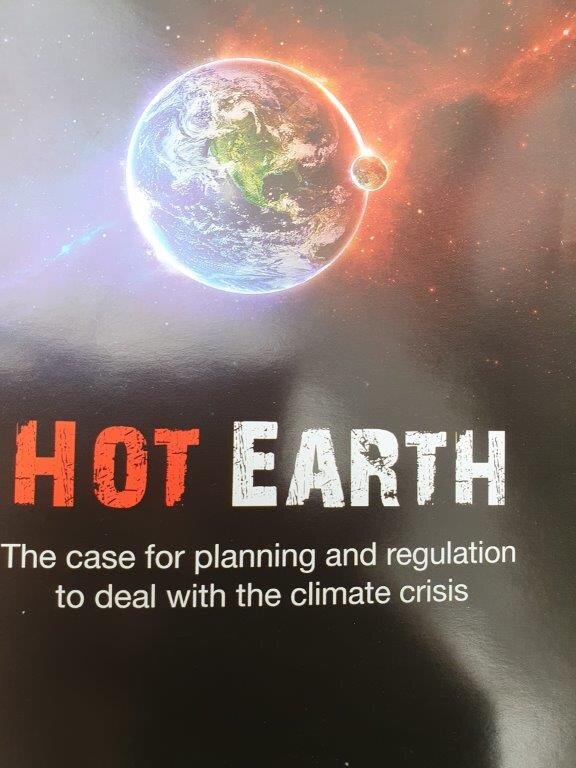
Hot Earth -the case for planning and regulation to deal with climate change
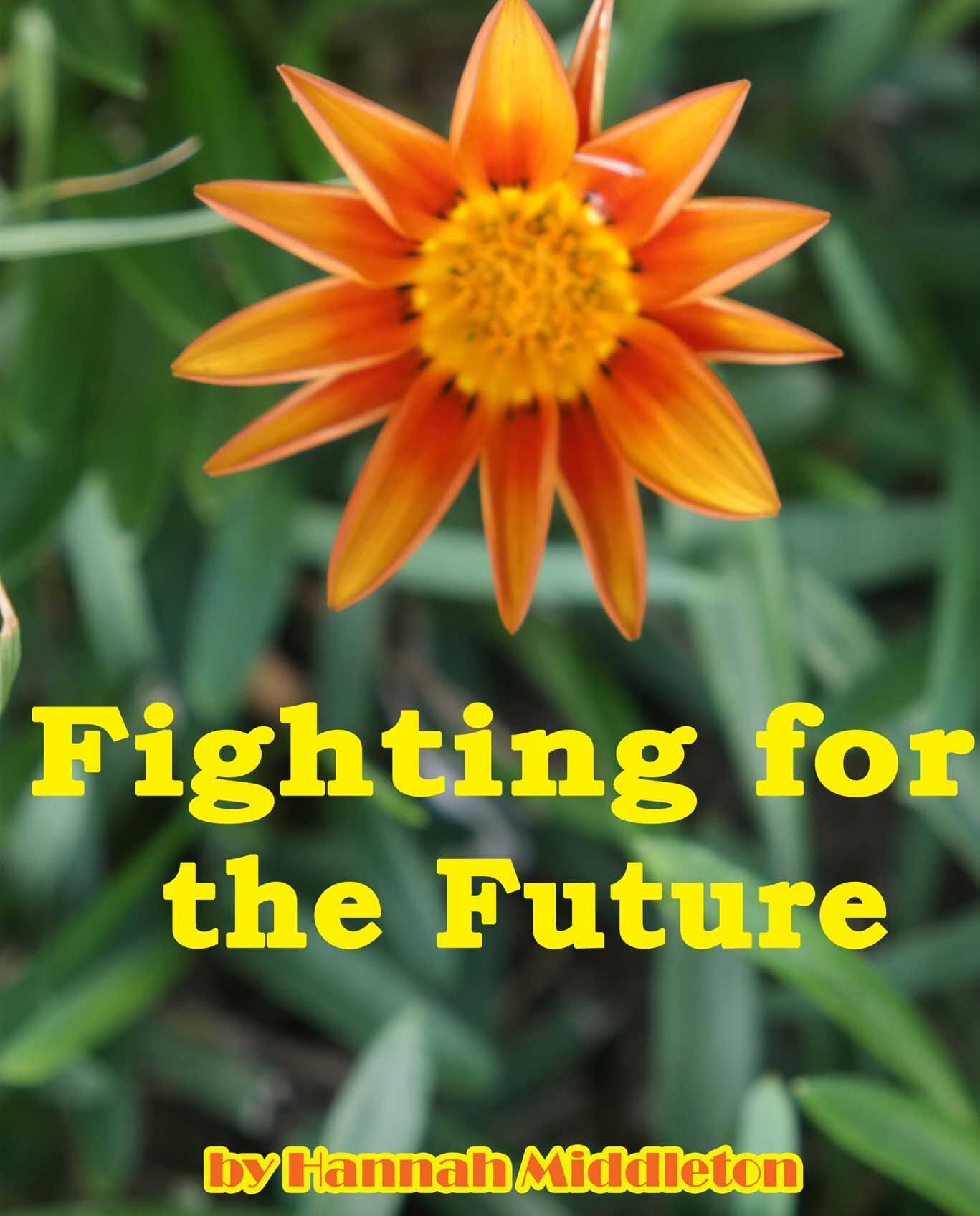
Fighting for the Future argues we only have a few years left to build socialism and save our planet

Fighting for the Future argues we only have a few years left to build socialism and save our planet




